Ghost_Layer Is Out Now | ChatGPT & Midjourney A.I. Examples
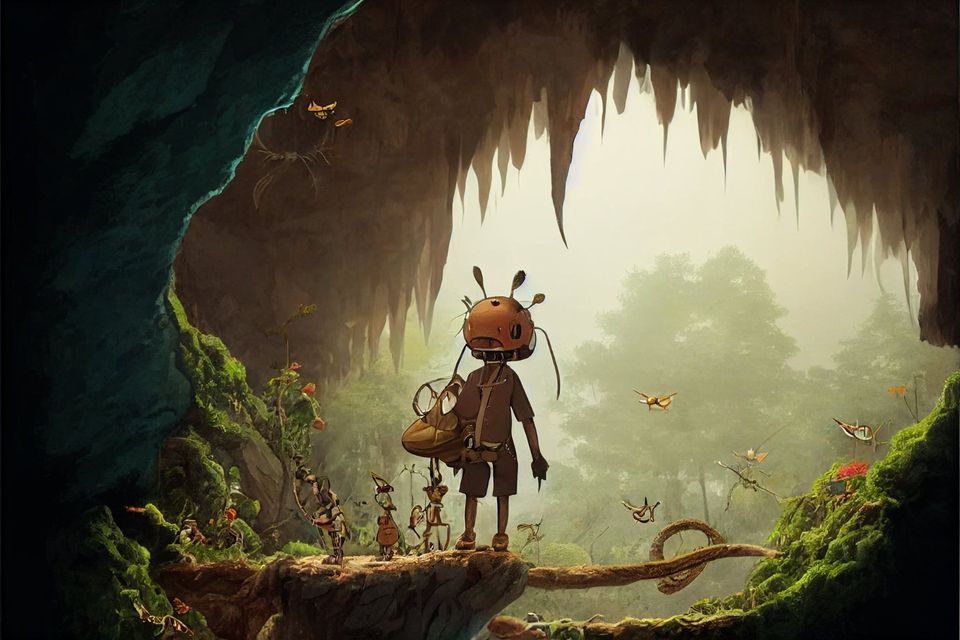
Welcome to the February 2023 edition of...
What I'm Into, What I'm Up To
#35
What I'm Up To
- Ghost_Layer is now available as a free ebook on all platforms and as an auto-narrated audiobook on Google Play. You have until February 14th to get the audiobook free with this code ( 13F7ZNHPS7X0X ) or through this link ( https://play.google.com/redeem?code=13F7ZNHPS7X0X )! It feels great to have this novella done and out in the world! I think it makes a great first episode in what could be a really fun series, but we'll see how much traction it gets.
What I'm Into
Everyone is talking about A.I. assisted tools right now, and as I've spent time with a couple of them recently, I'd like to do some show and tell for you.
First, Google's auto-narration feature.
For any of you who have listened to the Ghost_Layer audiobook, you will hear that it does indeed work! And the narration is not that bad.
Like all these tools, it's not as good as a real person. It doesn't always emphasize the right words in the right way, and it doesn't put in the nuance that a good voice actor would. But it's cheap (in this case free) and fills the gap between no audio option at all and the expensive human-made option I'm hoping to eventually provide.
Next, ChatGPT.
Before this chatbot took the world by storm, I had heard about the parent company, OpenAI, and their increasingly remarkable GPT 'language models' from a tech-optimistic writing podcast I listen to sometimes. But I had no experience using any of them, because they weren't super easy to use.
Enter: a chatbot version called ChatGPT.
For last month's email about the free Ghost_Layer audiobook I thought it would be fun to see how GhatGPT would write the email.

So there you have it. ChatGPT can take any prompt and spit out something dry and professional-sounding, like magic.
What's more fun, though, is using it to write poetry or story ideas. This one was for a friend.
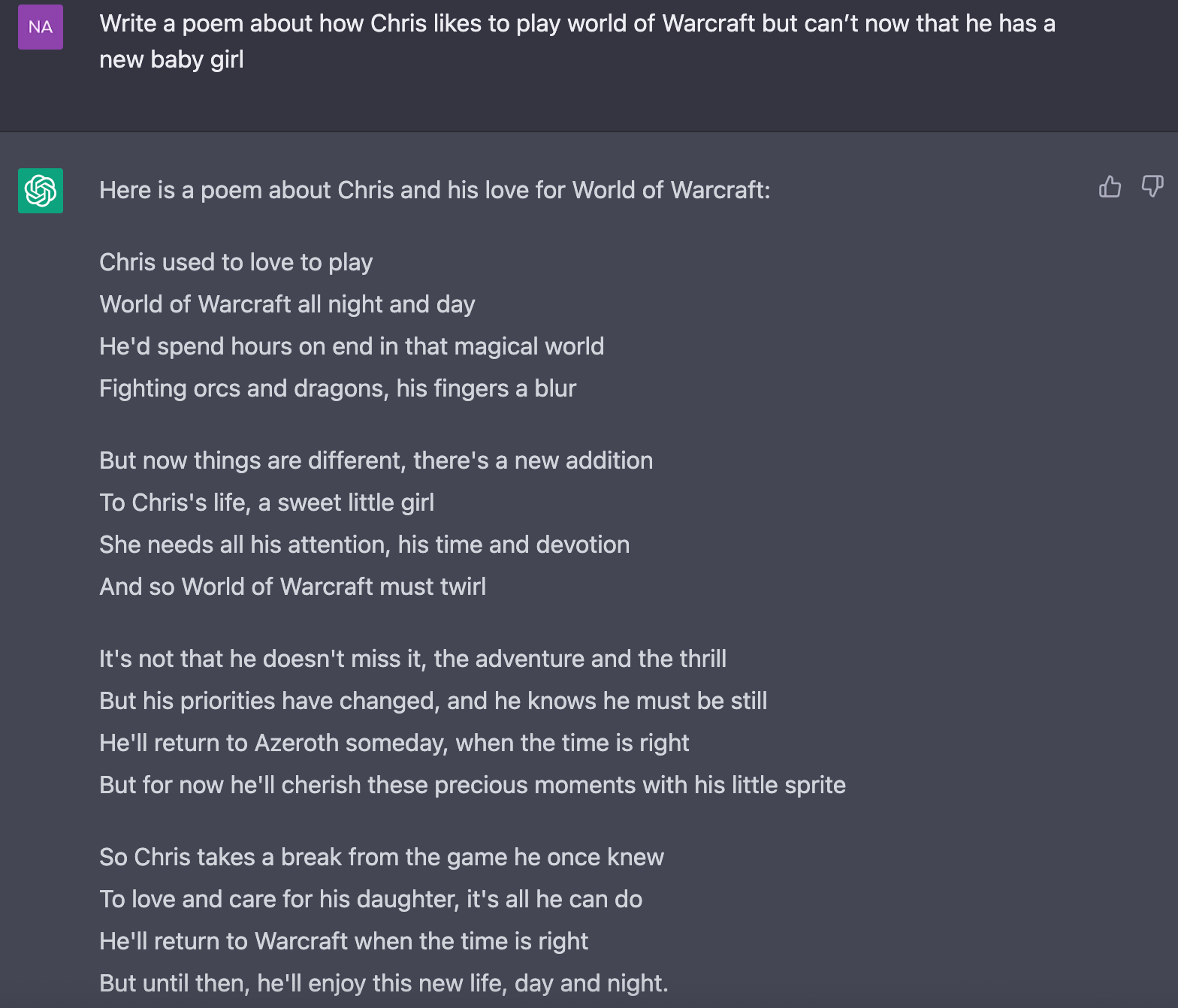
But chatting with an 'A.I.' language predictor is only half the fun. Have you tried making A.I. generated art yet?
There are several options, but I used a platform called Midjourney to spin up some artwork for my ongoing secret project. Here are a few examples.
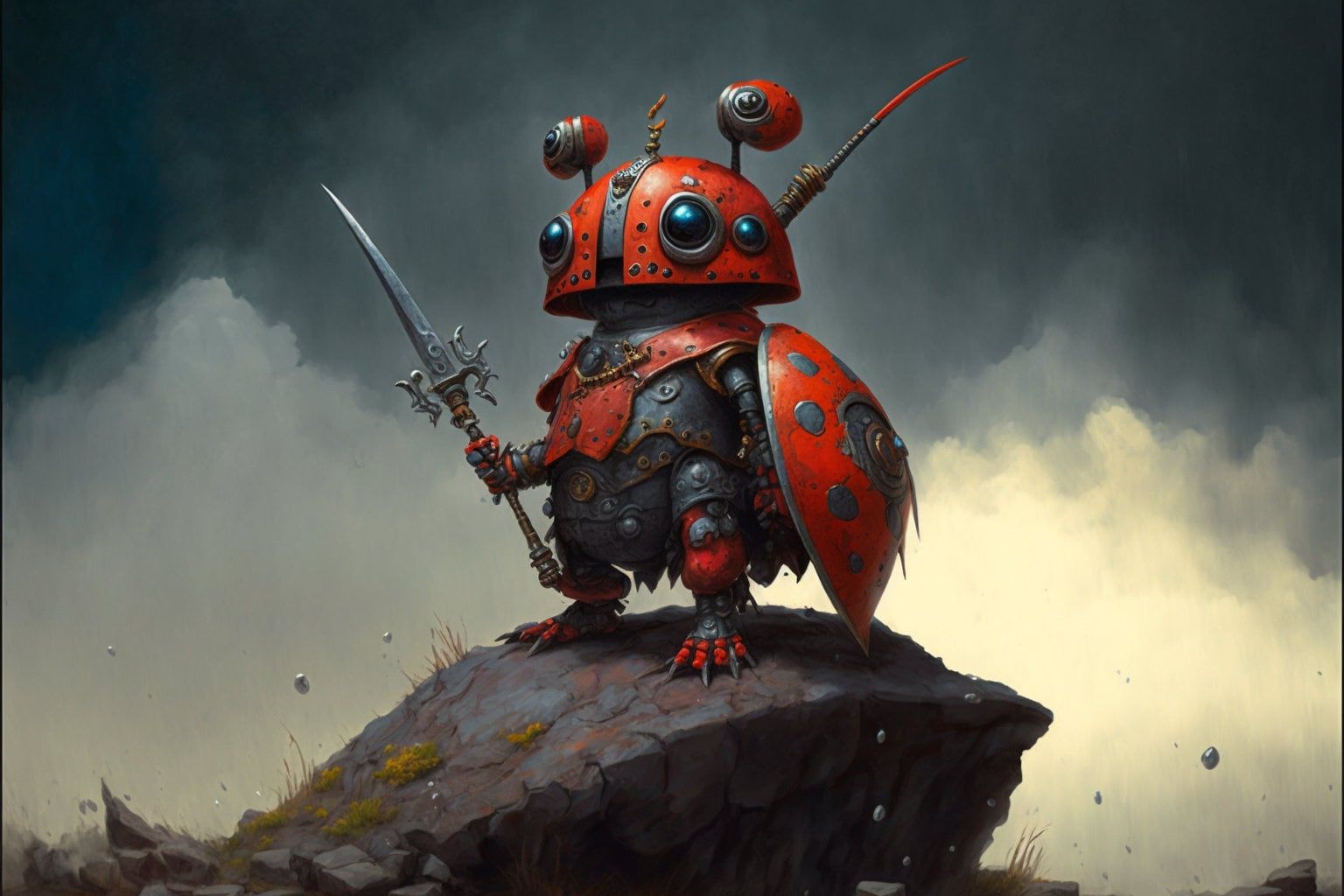
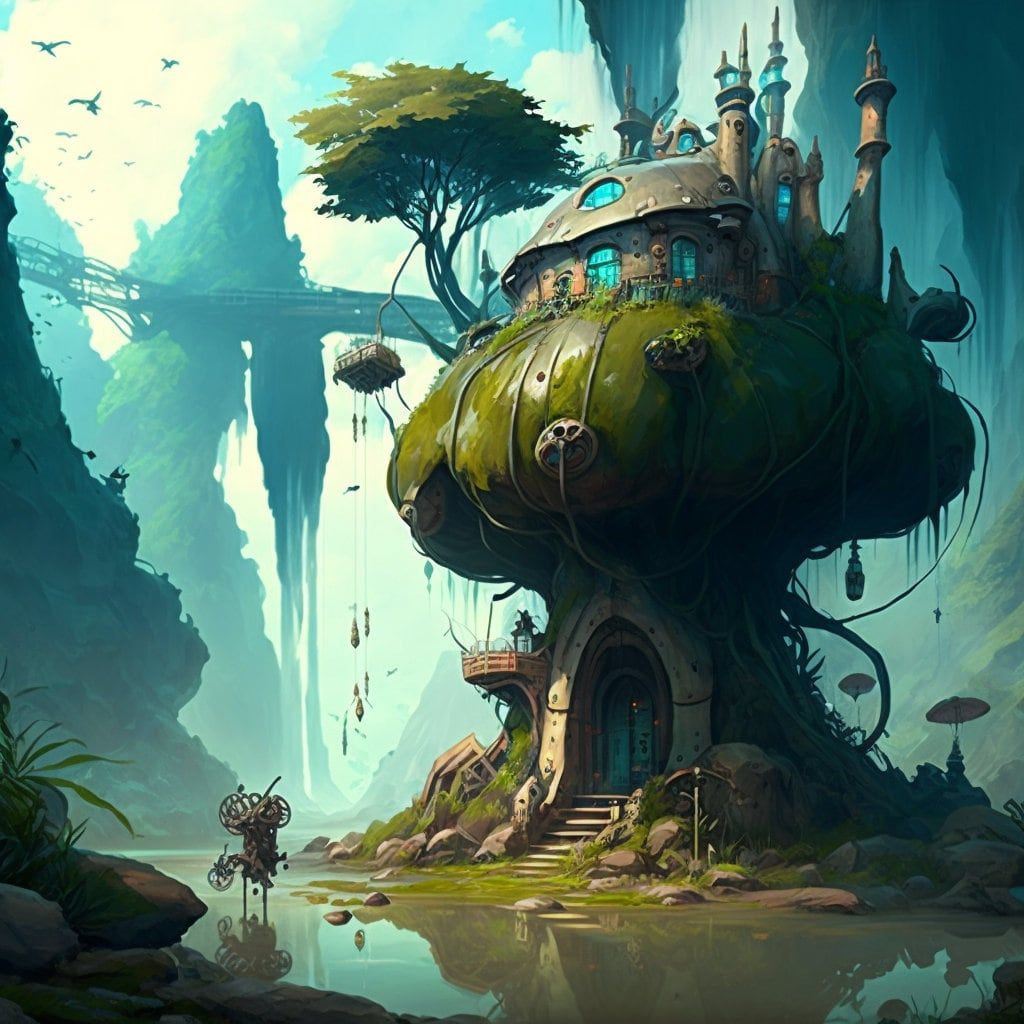
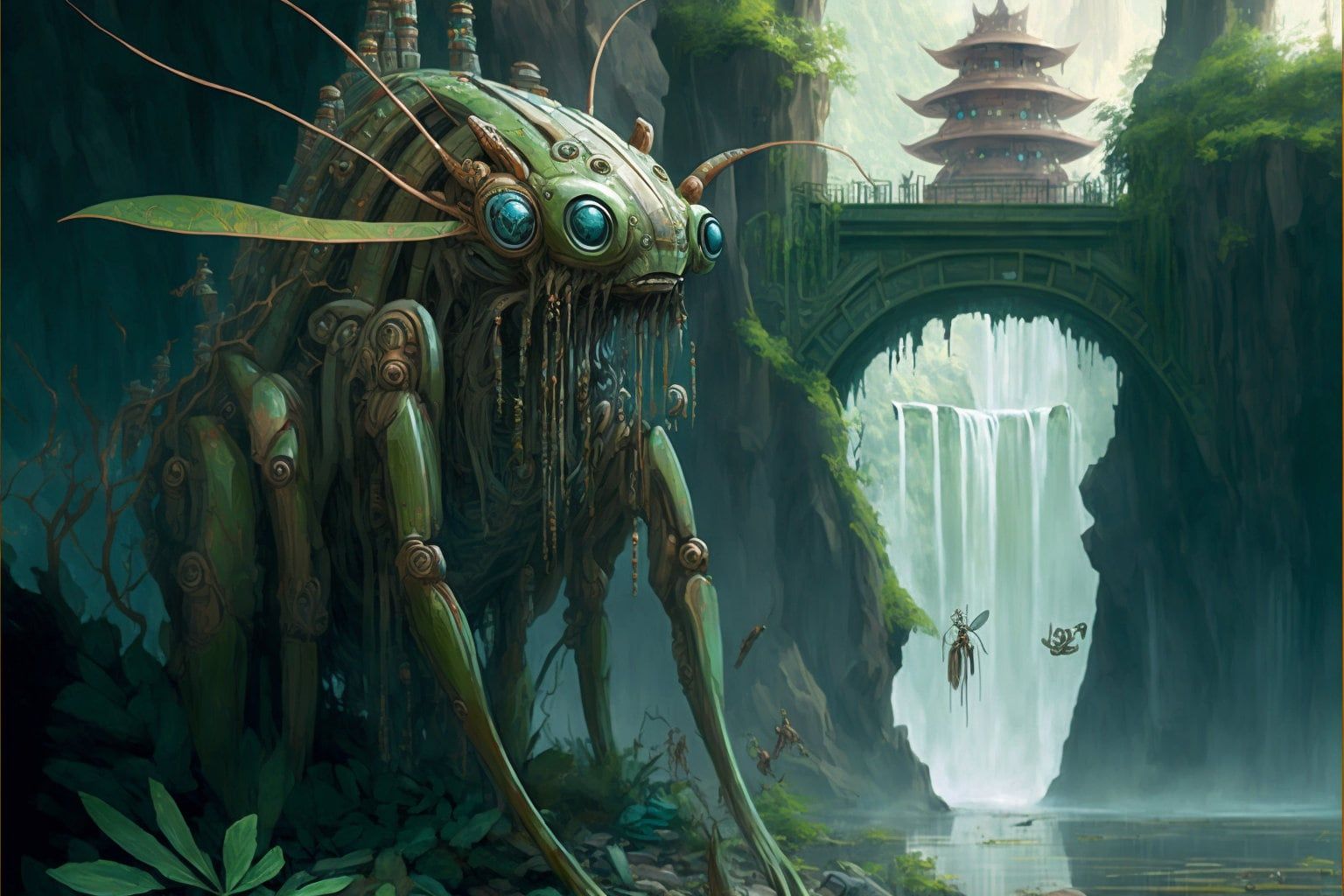
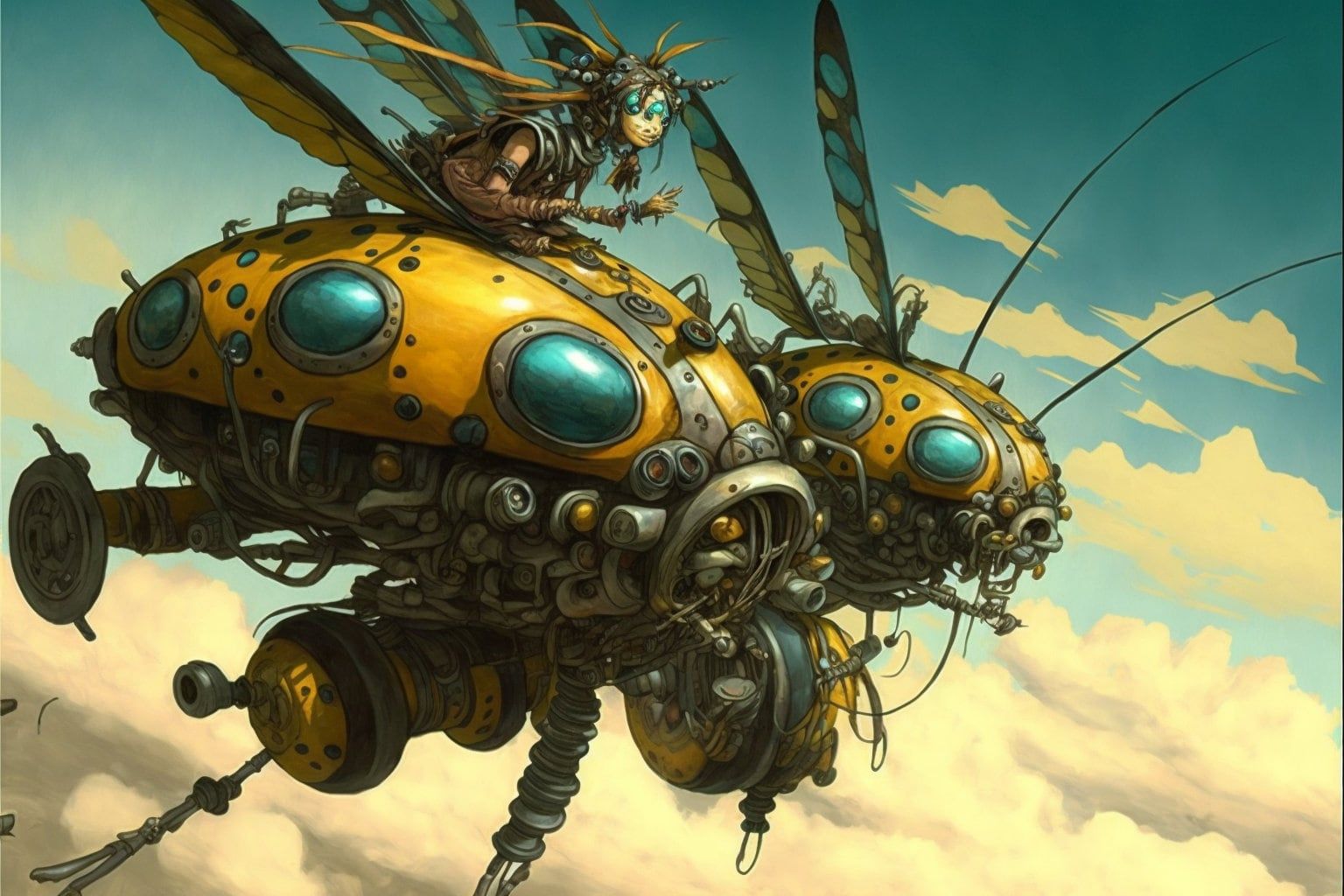
I typed some text of what I wanted and Midjourney spit these images (and a whole bunch more) out at me.
The challenge with this stuff is fine-tuning the text prompt to get the desired results, because I spent hours trying to get the kinds of images I wanted. Of the four above, only one was close to what I was hoping for (the robot samurai ladybug, in case you're wondering) even though the others were still amazing and inspiring.
If you look closely, you can see little weirdnesses—random extra stuff that doesn't quite fit. For example, in the preying mantis/waterfall image, there are weird floating things in the waterfall area. And Midjourney is already notorious for doing strange things with hands and feet.
BUT, for generating some quick, cheap concept art to brainstorm or put together a pitch or flesh out a website, it's a game changer.
Obviously, there are ethical questions.
The way these A.I. models work, based on my very limited understanding, is that the companies 'scrape' the internet for content, and the A.I. tools use all those multitudes of data to build sentences or pictures or whatever it is, basically remixing everything the tool has access to in order to give the current user what it thinks they want based on the text prompt.
That's my very basic understanding, but what it means is that, for example, artists who have posted tons of art on ArtStation (a very cool portfolio website) might notice some of the images being created by Midjourney look remarkably like their own art.
But now that these tools exist and are being used, it's really a matter of figuring out the legalities of who owes who what. Ideally anyone will be able to license their voice, or art, or words for A.I.-based tools to use and then, theoretically, everyone might be happy?
As for me, I fully intend to hire a human voice actor to read my books when I'm able to afford it and it makes sense for the scale of the project. Also, Ghost_Layer is a short novella, so it was fairly easy to go through the whole book and make sure the auto-narration said words and terms correctly, but bigger books will take forever for a perfectionist like me.
At some point, the A.I. narration will be good enough that voice actors might be able to license their voices, based on their past work or a bunch of samples, and no one will have to spend hours in a recording studio or spend thousands of dollars on a good audiobook recording. Again, ideally this would work out well for everyone, but we shall see.
Successful businesses get what they can afford when they can afford it, and I think these A.I. tools—text generation, auto-narration, art generation, and whatever's next—add more tiers of resources for artists and creators and businesses to do more with less.
But will that be good news for everyone, or will it work out well for a few while a majority are stripped of more opportunities for well-paid gigs?
What do you think about the A.I. takeover? Let me know!


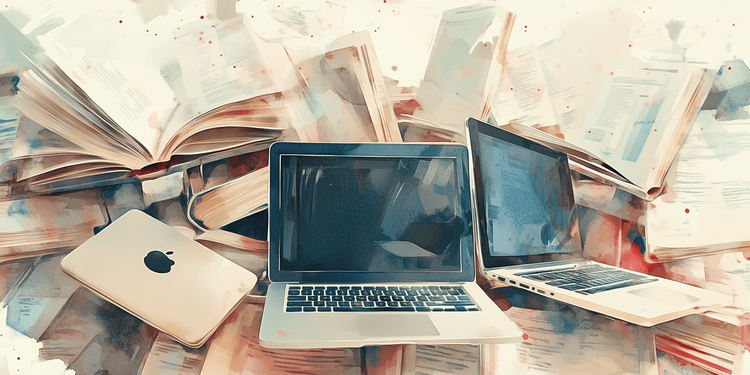

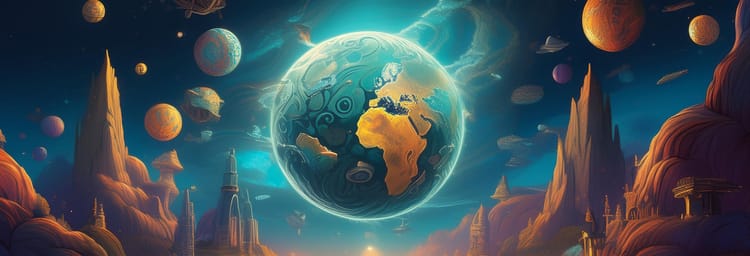
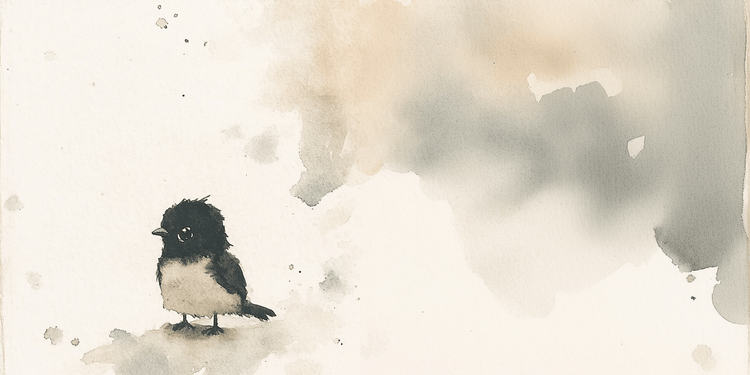
Member discussion